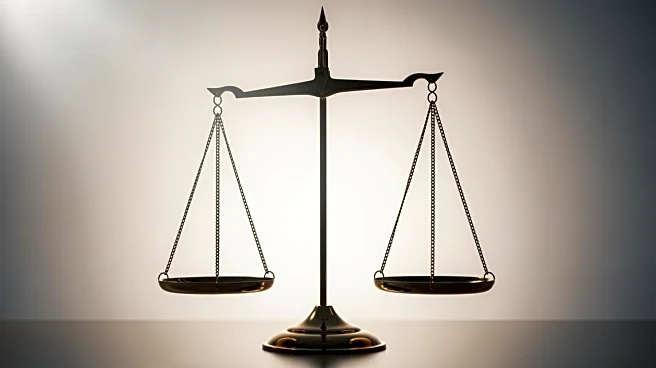What's Happening?
The Supreme Court is evaluating President Trump's use of the International Emergency Economic Powers Act of 1977 to impose tariffs on imports from over 100 countries. Justices questioned the legality of Trump's unilateral
tariff imposition, which aims to reduce the trade deficit and boost U.S. manufacturing. The administration argues that the tariffs are regulatory, not revenue-raising, and fall under the president's foreign commerce powers. However, liberal justices, including Sonia Sotomayor, challenged this view, asserting that tariffs are essentially taxes, which the Constitution reserves for Congress.
Why It's Important?
The case has significant economic and political implications, potentially affecting U.S. businesses, consumers, and trade policy. A ruling against Trump could limit presidential power in trade matters, impacting his administration's ability to address trade imbalances and national security threats through tariffs. Conversely, a ruling in favor could reinforce executive authority, allowing future presidents to use tariffs more freely as a policy tool. The decision will influence U.S. trade relations and could lead to legislative changes to clarify the scope of presidential powers.
What's Next?
The Supreme Court is expected to issue a decision within weeks or months, which could either uphold or limit the president's tariff authority. If the court rules against Trump, the administration may need to refund billions collected through tariffs, complicating government finances and trade dynamics. The ruling will likely prompt discussions on legislative reforms to address ambiguities in the emergency powers statute and define the limits of executive authority in economic matters.
Beyond the Headlines
The case underscores the tension between executive and legislative powers in the U.S. government, highlighting the need for clear legal frameworks governing presidential actions in foreign commerce. It raises broader questions about the balance of power and the role of the judiciary in interpreting constitutional limits on executive authority. The outcome could influence future administrations' approach to trade policy and international economic relations.









